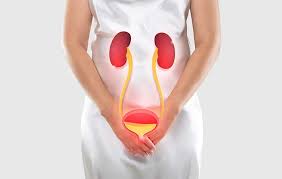Cystitis is a very common problem, especially in women, and can be caused by a variety of factors. In most cases, the disease is triggered by bacteria that are normally present in the human body (for example, in the intestines). These microorganisms, for various reasons, are transported to the bladder, which, not being their natural environment, reacts to the invasion by inflammation and causes a number of disorders. Also, cystitis can be caused by microbes from the outside. The main culprits are Gram-negative bacteria (E. coli). Gram-positive bacteria, especially staphylococci, also cause cystitis in a smaller percentage.
In women, cystitis can also be due to changes in the vaginal bacterial flora. Under normal conditions there is a balance between bacteria, but when for some reason this balance is disturbed some "peaceful" bacteria suddenly become aggressive and cause an inflammatory reaction .
How does cystitis manifest itself?
In most cases, cystitis begins acutely, that is, disorders occur suddenly, a few hours after infection, without any warning alarm bells . As a rule, the situation is resolved within a few days, but much depends on the timeliness of treatment and the individual susceptibility of the patient.
Often cystitis recurs, for example, when the seasons change or during a period of severe stress. The most prone to relapse are women who smoke, drink little, have bowel problems (constipation).
In some cases, cystitis becomes chronic, which is often determined by the evolution of the acute form, but with symptoms of less intensity and duration.
What are the most common symptoms of cystitis?
Difficult, slow and painful urination; increased number of urination within 24 hours; burning before and during urination; painful spasm followed by an urgent need to urinate; urgent need to urinate, sometimes with urge incontinence; sensation of pain and heaviness over the pubis; feeling of heaviness in the perineum and incomplete emptying of the bladder. Sometimes blood is observed in the urine due to rupture of the most fragile capillaries. In some cases, evening fever, back pain, chills appear. Urine becomes cloudy and has an unpleasant odor.
How to distinguish cystitis from other diseases?
Although cystitis is a common problem, not everyone knows how to recognize it. Someone confuses it with vaginal infections or irritations, someone with bowel problems, someone with urethritis. That's why it's important to pay close attention to the symptoms and know which ones are confusing.
Problems with urination are almost always present in cystitis, in their absence, it is more legitimate to suspect other pathologies. An irritated colon can cause frequent urination. Also, burning sensation and frequent urination may be associated with vulvovaginitis . If urine gets on the inflamed vaginal mucosa, it can cause a burning sensation.
What to do?
recommended to contact a gynecologist or urologist at Bogoliuby Medical Center to assess the situation. Typically, a urinalysis with culture is required to check for bacteria in the urine.
In most cases, treatment for cystitis involves the use of antibiotics. The drug is usually selected after a urine culture that identifies the responsible strain.
How to prevent?
For the prevention of cystitis, it is recommended: during intimate hygiene, first wash the anal area and only then proceed to the vaginal area. Wear panty liners only when necessary. Urinate before and immediately after intercourse. Drink 1.5-2 liters of fluid per day. Eat fiber-rich foods such as fruits, vegetables, and grains. Don't wear overly tight underwear.
















